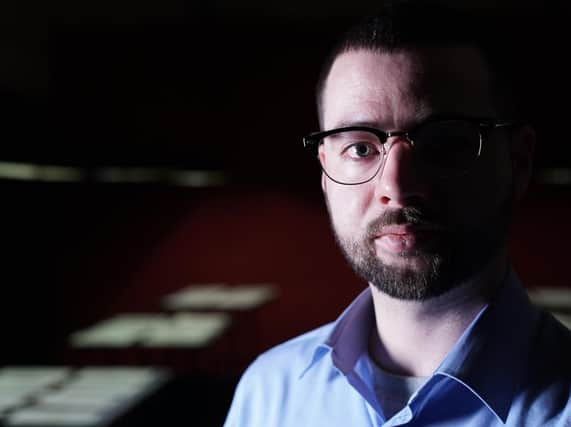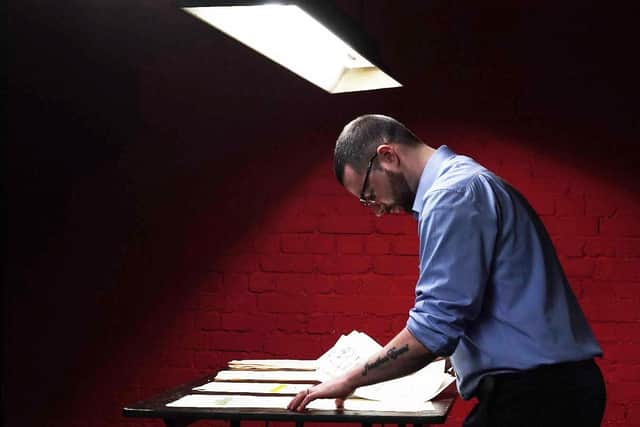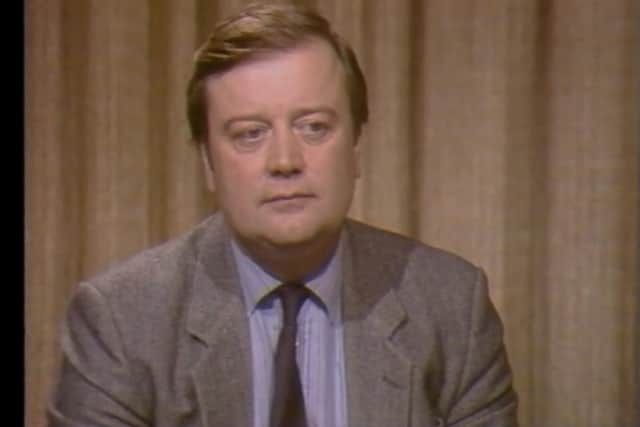ITV documentary reveals untold stories of infected blood scandal that affected Yorkshire patients


Thousands of patients were infected with HIV and Hepatitis C during the 1970s and 1980s, it is believed.
People from Yorkshire and the North of England affected by the scandal spoke out at the Infected Blood Inquiry when it came to the Crowne Plaza hotel in Leeds last year.The documentary, In Cold Blood airs on ITV on Sunday night.
Advertisement
Hide AdAdvertisement
Hide AdJason Evans, a campaigner who lost his father to HIV/AIDS, said: "I think when you look at this in terms of the numbers, thousands infected, well over 1,500 dead, when you compare it to all the other national disasters - Hillsborough, the Birmingham bombings, Grenfell - the scandal that happened with the Factor concentrates eclipses all of them combined.


"Yet it has never had that recognition."
Around 2,400 people are thought to have died after thousands of patients were infected with HIV and Hepatitis C through contaminated blood products.
Many victims had or have haemophilia, a blood-clotting disorder, and relied on regular injections of clotting agent Factor VIII, which was made from pooling human blood plasma.
Britain was running low on supplies of Factor VIII so imported products from the USA, where prisoners and others were paid for giving blood.


Advertisement
Hide AdAdvertisement
Hide AdIn June last year, Leeds man Graham Binks told the inquiry how his wife Margaret went from "perfectly healthy" to terminally ill in under two years and died in 1980, aged 43.
Hull man Darren Rawson told how he felt "lied to" by the health service he was brought up to trust after finding out years later that blood transfusions he needed as a child may have infected him with Hepatitis C.
The Department of Health and Social Care says now that the "tragedy should never have happened" and says that it recognises the "pain and suffering" caused to victims.
The documentary is directed by Grierson Award-winning and BAFTA-nominated documentary maker Marcus Plowright.
Advertisement
Hide AdAdvertisement
Hide AdWith access to previously unexamined documents from inside Government - revealing the thinking of its medical, scientific and public health leadership - the film examines claims that warnings were systematically ignored, and the story was subsequently covered up.
The programme features new evidence unearthed by Mr Evans, of Factor 8, the Independent Haemophilia Group, whose Freedom of Information requests are said to reveal untold stories spanning 40 years, along with victims' personal testimony and the results of the filmmakers' "forensic" examination of Department of Health memos.
With eyes on The Department of Health and Social Care during the Covid-19 pandemic, and airing after the public inquiry looking into the scandal reopens, the film offers viewers an insight into a tragedy.
Campaigners say that for haemophiliacs, the turning point in their lives was the discovery in the 1970s of the Factor VIII treatment, which helped blood to clot quickly, allowing them to live a normal life.
Advertisement
Hide AdAdvertisement
Hide AdThe decision was made to begin importing Factor VIII from the USA after the British blood products laboratory quickly ran out of capacity to cater for the demand.
A Department of Health and Social Care spokesperson said: “The infected blood tragedy should never have happened. The ongoing public inquiry was set up to establish the truth and give individuals and families the answers they rightly deserve.
“We recognise the ongoing pain and suffering caused to those involved and are committed to being open and transparent with the inquiry.
"We have waived the usual legal professional privilege to assist the process and former Ministers and civil servants continue to provide information to ensure the inquiry can publicly explore any issues of concern carefully and fully.”
In Cold Blood airs on ITV this Sunday at 10.20pm.